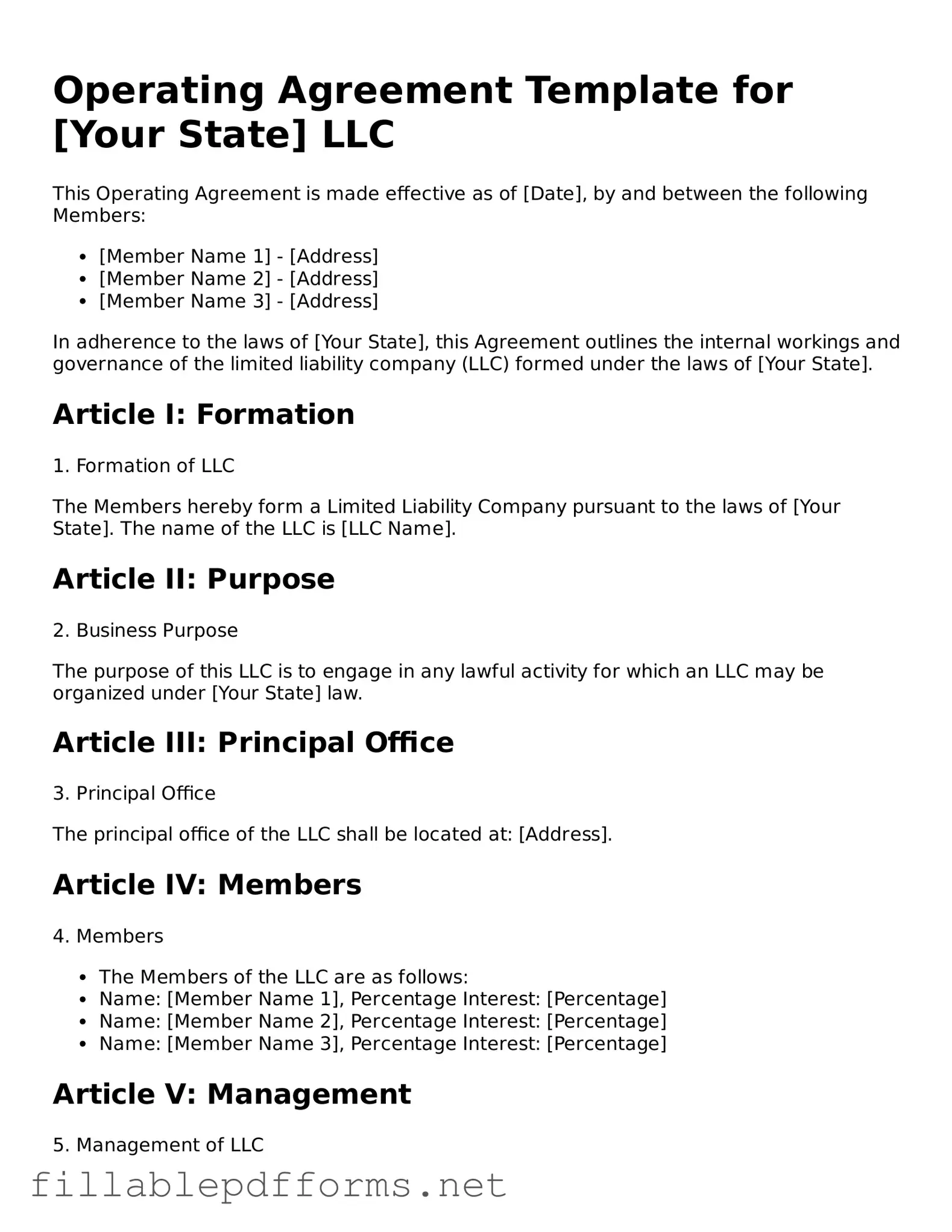Blank Operating Agreement Template
An Operating Agreement is a key document for limited liability companies (LLCs) that outlines the management structure and operating procedures of the business. This agreement serves to define the roles and responsibilities of members, as well as the financial arrangements among them. Having a clear Operating Agreement can help prevent disputes and ensure smooth operations within the company.
Launch Editor Here

Blank Operating Agreement Template
Launch Editor Here

Launch Editor Here
or
▼ Operating Agreement PDF
Almost there — finish the form
Complete Operating Agreement online fast — no printing, no scanning.